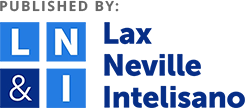The investment world is buzzing about the SEC’s fraud allegations against Goldman Sachs for misrepresenting and omitting to disclose Paulson’s role in choosing RMBS securities for the ABACUS CDO and then shorting the same individual RMBS through CDS transactions with Goldman. According to the SEC, “investors in the liabilities of ABACUS are alleged to have lost more than $1 billion.” It is hard to tell whether direct investors in ABACUS lost $1 billion or whether that includes companies which had CDS risk exposure to it. Either way, what are the money losers going to do about it?
According to the SEC complaint, IKB, the German commercial bank, bought $150 million of Class A-1 and Class A-2 Notes which seem to look like the AAA-rated upper tranches of ABACUS. But there is no other disclosure of who else bought ABACUS from Goldman. I presume that IKB was very cooperative with the SEC and allowed its name to be used in the complaint as opposed to being dubbed “Investor #1”. IKB has likely been negotiating with Goldman behind the scenes. I expect to see a civil complaint filed by IKB against Goldman in federal court in New York shortly. However, they are probably better off arbitrating the dispute for numerous reasons (privacy, low cost, limited dispositive motion practice, etc.).
The SEC complaint also explains how a division of ACA, the monoline insurance company, served as the “Portfolio Selection Agent” for ABACUS, and another division of ACA (ACA Capital) also sold protection on $909 million of the super senior tranche of ABACUS through credit default swaps as well. ABN AMRO, the European bank, then assumed that same exposure through CDS deals with Goldman and ACA. The complaint alleges Goldman defrauded IKB, ACA and ABN AMRO. ABN AMRO was bought by the Royal Bank of Scotland and after ABACUS went to almost zero, RBS paid Goldman $841 million, most of which was then paid by Goldman to Paulson due to Paulson’s short bets on the underlying tranches. Got that?
 New York Securities Lawyer Blog
New York Securities Lawyer Blog


